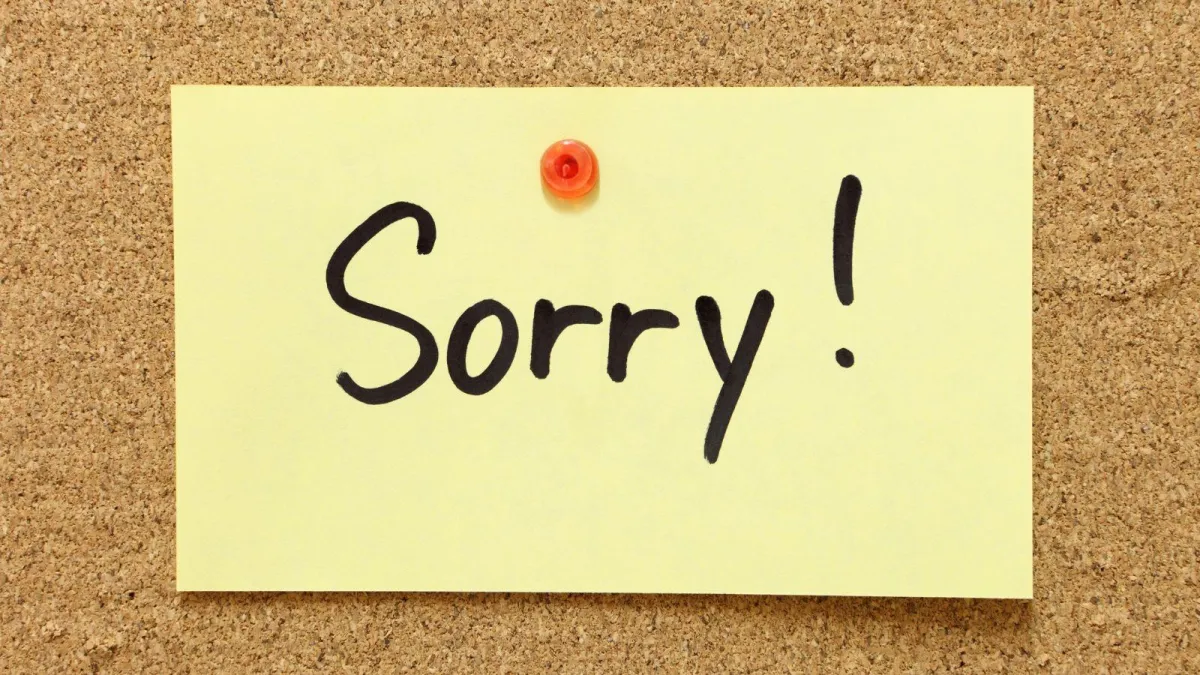The Social Communication Blog
By Linda Boverman

Children Need to Hear: “I’m sorry, I made a mistake.”

“I’m sorry. I made a mistake,” I said to the student.
She gave me a look that made me think I was speaking a foreign language.
After a few probing questions, I learned she had never before heard those words uttered by an adult. Whether this is true or not seems insignificant. What is significant is that she thinks she’s never heard them. And this affects how she feels and what she does.
I decided to check whether this was a lone response by asking other children about adults apologizing to them. I soon learned she wasn’t alone. Child after child reported they didn’t receive apologies from adults.
But they did report they heard words of apology–from their own lips and the lips of other children. Often just I’m sorry. The reason is: we, the adults, make them say them. So they do. Often without having heard or understanding the reason for the apology and often without feeling behind them. At least not the feeling we want them to feel. They’re uttering these words to get away, go play, do anything besides have an adult looking at them demanding an apology they don’t feel or are embarrassed saying. Not learning anything positive about apologizing.
I’m not promoting not teaching our children to apologize, even when they don’t feel sorry. Sometimes they need to. Sometimes we all need to apologize simply because it is the right thing to do. I’m also not talking about the sorry women tend to say more than men. The automatic one that comes out when someone bumps into US or when we enter a group of people or when we need some information.
I’m talking about when we actually make a mistake.
“I’m sorry, I made a mistake. I misread the directions.” “I’m sorry, I made a mistake. Your way would have been more efficient. Remind me if I forget again.” “I’m sorry, I made a mistake. Next time I’ll check with you.” “Oops. I’m sorry, I made a mistake. Let’s rewrite it.”
I don’t believe this diminishes our authority. I belive it heightens it and facilitates connection and trust.
If we want our children to feel positive about themselves and know they are not flawed, we need to do healthy modeling. Say, “I’m sorry. I made a mistake,” and mean it. Give it confidently, with sincerity, even playfully. Give it frequently, without embarrassment, guilt, or any semblance of “not good enough”.
They need us to feel good about our apologies and ourselves. Doing this helps your child’s self-esteem–and likely our own– as well as takes away the burden of trying to be perfect.
Our mistakes change the chemistry of our brains for the better. They make our brains grow–literally. They physically stretch our brains. They also teach us lessons about planning, organizing, problem-solving, compassion, and the value of failure.
They are how we learn. They are unavoidable, and we shouldn’t try to avoid them. Avoiding them would lead us not to guess or take risks–both mandatory for learning. Guessing, making mistakes, failing, apologizing, trying again, persisting go hand in hand and are necessary for success and happy living.

In reality, we don’t always have to say “I’m sorry” when we make a mistake. Sometimes just acknowledging the mistake is more helpful. Some teachers have mistake jars. For every mistake, a token is put into the jar. When the jar is full, they have a celebration.
It took me an embarrassingly (yes, embarrassingly) long time to understand that saying “I’m sorry, I made mistake” didn’t mean there was something wrong with me. Now, when I don’t say it, I feel like something is wrong with me.
There is also a side benefit of apologizing. The opportunity to practice:
FORGIVENESS.

If you would like to learn more about how the brain works and the value of effort and making mistakes, you may want to take a look at Carol Dweck’s website or listen to her TEDtalk
My article, How our Thinking Changes our Brains–for Better or Worse also gives an overview of her work.
To learn more about the pitfalls of perfectionism, feel free to check out, Why Perfectionism is Shooting Oneself in the Foot.
“How we communicate affects our joy of being alive.” – Linda

Copyright 2023 . All rights reserved
lindaboverman@gmail.com
(213) 804-7750

